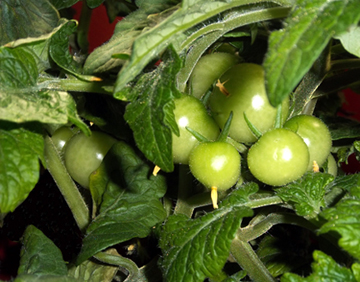 Washington, Apr 10: Want to grow bigger, stronger muscles like Arnold Schwarzenegger? Eat green tomatoes!
Washington, Apr 10: Want to grow bigger, stronger muscles like Arnold Schwarzenegger? Eat green tomatoes!
A natural compound in green tomatoes stimulates muscle growth, improves muscle strength and endurance, protects against muscle wasting, a new study claims.
Using a screening method, University of Iowa scientists discovered that tomatidine, a compound from green tomatoes, is potent for building muscle and protecting against muscle atrophy.
Muscle atrophy, or wasting, is caused by ageing and a variety of illnesses and injuries, including cancer, heart failure, and orthopedic injuries, to name a few.
It makes people weak and fatigued, impairs physical activity and quality of life, and predisposes people to falls and fractures.
“Muscle atrophy causes many problems for people, their families, and the health care system in general,” said Christopher Adams, associate professor of internal medicine and molecular physiology and biophysics.
 In a new study, Adams searched for a small molecule compound that might be used to treat muscle atrophy.
In a new study, Adams searched for a small molecule compound that might be used to treat muscle atrophy.
He zeroed in on tomatidine using a systems biology tool called the Connectivity Map.
Adams discovered that tomatidine generates changes in gene expression that are essentially opposite to the changes that occur in muscle cells when people are affected by muscle atrophy.
After identifying tomatidine, Adams and his team tested its effects on skeletal muscle. They first discovered that tomatidine stimulates growth of cultured muscle cells from humans.
“That result was important because we are looking for something that can help people,” said Adams.
They found that healthy mice supplemented with tomatidine grew bigger muscles, became stronger and could exercise longer. And, most importantly, they found that tomatidine prevented and treated muscle atrophy.
Interestingly, although mice fed tomatidine had larger muscles, their overall body weight did not change due to a corresponding loss of fat, suggesting that the compound may also have potential for treating obesity.
The study was published in the Journal of Biological Chemistry.





Comments
Add new comment